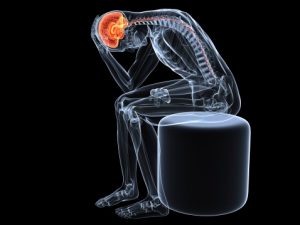
The obsessive component of this disorder manifests as unwanted or intrusive thoughts, images, or desires that trigger intensely distressing feelings. OCD sufferers then engage in an attempt to get rid of the obsessions to decrease their distress or anxiety.
The causes of OCD are not well understood, and there are many theories regarding its development. They involve:
- Biology: Changes in your body’s own natural chemistry or brain function.
- Genetics: Thought to be related to inherited genes, but this has yet to be proven.
- Environment: Certain infections are thought to trigger OCD, however, more research is needed in this respect.
Looking closer at the brain
New research into the study of mental health has, for the first time, found tangible evidence linking brain inflammation to OCD.
Imaging studies done by the Center for Addition and Mental Health (CAMH) have found that brain inflammation of more than 30 percent was seen in individuals with obsessive-compulsive disorder compared to those without.
“Our research showed a strong relationship between brain inflammation and OCD, particularly in the parts of the brain known to function differently in OCD. This finding represents one of the biggest breakthroughs in understanding the biology of OCD, and may lead to the development of new treatments,” said Dr. Jeffrey Meyer.
Normally, inflammation is a bodily response to infection or injury, with the ultimate goal of aiding the healing process. However, this immune-system response can also be very damaging to the host tissue itself, leading to harmful outcomes.
Finding a delicate balance
The researchers hope to dampen this inflammatory response through the use of new medications or other innovative approaches. This discovery could prove to ignite new ways of treating OCD.
“Medications developed to target brain inflammation in other disorders could be useful in treating OCD. Work needs to be done to uncover the specific factors that contribute to brain inflammation, but finding a way to reduce inflammation’s harmful effects and increase its helpful effects could enable us to develop a new treatment much more quickly,” says Dr. Meyer.